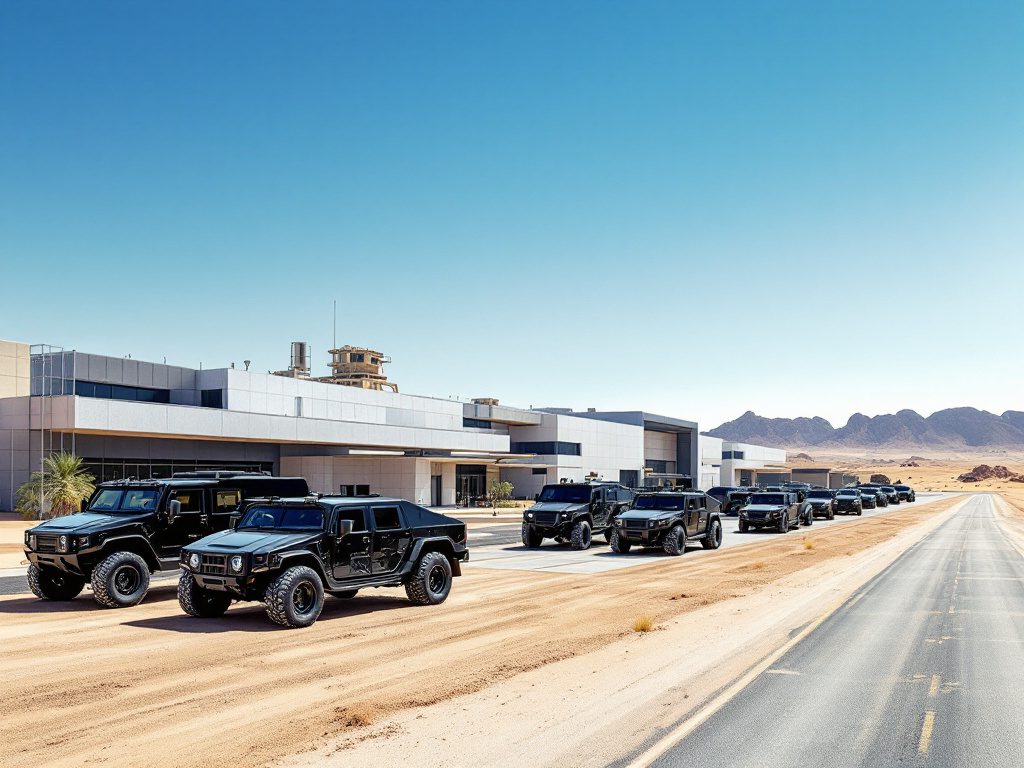Beyond Hardware: Understanding the Motives Behind the Sale
$425 million. That’s the price tag the U.S. government has put on its latest military sale—a major upgrade of Patriot missile systems to Kuwait, already a fortress in a volatile region. At first glance, this deal reads like a standard transaction between friends—one swath of high-grade military equipment flowing from Washington to a trusted Gulf ally. But as anyone who’s watched the shifting sands of U.S. Middle Eastern policy knows, no weapons deal of this magnitude happens in a vacuum.
Why now? Anxiety is running high in the Persian Gulf. Iranian ballistic missile programs and proxy activity throughout the region have prompted fresh worries among lawmakers and security analysts. The Biden administration has chosen careful engagement over reckless escalation with Tehran, yet—looming just beneath the surface—lies the possibility of rapid conflict should nuclear diplomacy break down. According to arms control expert Dr. Dina Esfandiary at the International Crisis Group, “Washington regards robust regional air defenses as crucial insurance should deterrence fail.” The recent Patriot upgrade for Kuwait is Washington’s second such approval this month, a not-so-subtle alarm bell about persistent fears that either Israeli or U.S. strikes on Iran could spark retaliation across the Gulf.
A closer look reveals stronger undercurrents: RTX Corp. (formerly Raytheon Technologies), the primary contractor for this mammoth deal, will now become an even more entrenched presence in the region. Company engineers, Pentagon advisers, and U.S. government officials are slated to cycle through Kuwait over the next decade, providing ongoing software upgrades, training, and logistics. While Congress technically retains veto power on such sales, approvals after a nod from the State Department are rarely more than a formality.
The New Patriot: Upgrades and Their Geopolitical Impacts
The equipment itself tells a story. The Patriot Post-Deployment Build 8.1 represents a significant leap in air defense capability compared to the systems that first arrived in the Gulf three decades ago. This upgrade introduces a cutting-edge Warfighter-to-Machine interface—a 3D-graphic control platform that helps Kuwaiti defense forces distinguish friendly aircraft from advanced ballistic missiles or swarms of low-flying drones. Gone are the analog green phosphor screens of Desert Storm. According to Pentagon briefings, this technology “will allow operators to more rapidly assess and neutralize evolving aerial threats, from cruise missiles to weaponized UAVs.”
In essence, the deal gives Kuwait a technological edge during an era when drones have upended traditional warfare. Think of the harrowing footage emerging from Ukraine’s conflict zones, where basic consumer drones drop explosives on armored vehicles. The Persian Gulf states know all too well that a single gap in air defenses could prove disastrous should hostilities with Iran—or its proxies like the Houthi rebels in Yemen—spiral out of control.
The
larger concern, however, is the ever-tighter defense embrace between Washington and authoritarian Gulf monarchies. Is this level of support, provided with few strings attached, truly serving U.S. interests or those of regional peace? Organizations such as Human Rights Watch and Democracy for the Arab World Now (DAWN) have repeatedly criticized advanced U.S. defense aid for Gulf states, arguing it fuels arms races and bolsters repressive regimes. Progressive thinkers warn that relentless arms sales contradict American values and perpetuate dependencies that make extricating U.S. forces from Middle East entanglements ever more difficult.
“Every major arms agreement is a referendum on what America truly prioritizes—security for our partners, or profits for our contractors—sometimes both, but too rarely the core democratic values we espouse at home.”
Strategic Dependency and Progressive Dilemmas
Bipartisan consensus rarely holds in Washington these days, but arms sales to Gulf partners are the exception. Both parties see Kuwait, tiny but oil-rich, as a linchpin of regional stability—an outpost for deterring Iranian adventurism, a forward base for American troops, and a customer that pays in cash. Yet progressive foreign policy voices are challenging the inertia, pointing to the risks these entrenched relationships pose when authoritarian tendencies harden and overdue reforms stall.
Harvard security analyst Tamara Cofman Wittes warns that “tying U.S. security guarantees too closely to Gulf monarchies ultimately limits American leverage when pressing for political reforms or basic human rights.” Indeed, recent years have seen civil liberties in Kuwait—typically more open than neighbors Saudi Arabia or the UAE—erode under pressure from conservative factions. At home, Americans question whether these billion-dollar suites of missiles serve their interests or simply pad the bottom lines of defense giants like RTX.
Scrutiny should not stop at ethics. The deal obligates American contractors and government representatives to remain physically present in Kuwait for at least eight to ten years, with periodic deployments for technical support and maintenance. At a time when Pentagon leaders claim to seek “a lighter footprint” in the Middle East, expanding such commitments rings hollow. As former U.S. Army General William Nash put it on PBS NewsHour, “A lighter footprint isn’t about sending fewer troops today if you tie yourself to constant engagement tomorrow.”
Yet despite these misgivings, the sale demonstrates how America’s enduring military-industrial alliances are hard to reverse, even when their long-term wisdom is questionable. Defense hawks argue that such technological partnerships are vital in an unpredictable world, but thoughtful progressives must continue to ask: Who really benefits? What do we sacrifice each time another missile or maintenance team is dispatched to the Gulf?

